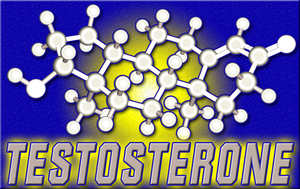Video Link: https://vimeo.com/291647823
Video Download: Click Here To Download Video
Video Stream: Click Here To Stream Video
The Endocrine Society is the leading authority on Hormonal Disorders in the world. At this year's ENDO 2018 medical conference, clinical guidelines for Testosterone Replacement Therapy were released to the public.
As you likely know, there is a range of opinions regarding the proper use of Bio- Identical Testosterone for Low-T. These clinical guidelines are intended to be a broad outline of the potential array of applications for Testosterone Therapy.
Identical Testosterone for Low-T. These clinical guidelines are intended to be a broad outline of the potential array of applications for Testosterone Therapy.
Individual Endocrinologists and Hormone Specialists are still urged to use their best personal judgment, and these guidelines are intended to help them provide treatment accurately and specifically to the individuals that need it most.
2017 was a big year for Testosterone Research, and this year's presentation reflected that fact. Major Clinical Trials were completed and fully analyzed. Researchers streamlined the mechanisms of Testosterone Deficiency Diagnosis and more.
This is the first time that Low-T Guidelines have been adjusted since 2010. As Testosterone Therapy becomes more widely accepted, you can imagine that men are more interested than ever in the treatment.
How Do We Determine Who Can Benefit from Low-T Therapy Most?
The leader of the Low-T Guidelines Task Force is Shalender Bhasim, a doctor at the Brigham and Women's Hospital. He explains that these updated guidelines are necessary because the number of HRT Clinics that offer Testosterone Therapy has ballooned in the last decade.
Surveys have shown that many men that are prescribed Testosterone are not sufficiently tested or monitored while taking the treatments. This means that many men get Testosterone without a clear clinical need and that many patients are at increased risk of medical complications resulting from inadequate monitoring.
The problem extends in both directions, however. While many men without Hypogonadism are getting treatment that they don't need, lots of men aren't screened for Low-T that may benefit significantly from the regimen. It's essential, in the interest of public health, that Testosterone Replacement Therapy is adequately and accurately diagnosed and treated.
Who Should Be Screened for Low-T?
Dr. Bhasim does not recommend widespread screening for Testosterone Deficiency, however. Though Low-T is relatively common, patients don't need to  undergo Hypogonadism Testing unless they show clear signs of deficiency, including fatigue, low libido, weight gain, loss of strength, and depression.
undergo Hypogonadism Testing unless they show clear signs of deficiency, including fatigue, low libido, weight gain, loss of strength, and depression.
In the future, it will very likely be reasonable to provide Testosterone to asymptomatic patients with Low Testosterone, but there is not enough published research to support that option at this time.
Like Human Growth Hormone Deficiency and other Hormonal Disorders, Low-T is a broad spectrum disorder, and every patient reacts to declining Testosterone Levels based on their unique physiology.
Every patient should get individualized treatment that caters to their personal needs. The decision to adopt a Low-T Therapy Program should be the result of the doctor's recommendation and the patient's conclusion that the benefits outweigh the risks.
Who Will Benefit Most from Testosterone Replacement Therapy?
With this vast increase in available medical data, the Low-T Task Force has been able to define who can benefit from Testosterone Therapy and why more confidently. They recommend Testosterone Replacement for two broad groups: for those with extreme Hypogonadism and those with Testosterone Deficiency.
For patients with significant Hypogonadism, Testosterone Creams, Patches, and Injections can help maintain secondary sex characteristics such as body composition, auxiliary hair distribution, and sexual function.
For men struggling with Andropause or otherwise dealing with Testosterone Suppression, Bio-Identical Testosterone can increase sex drive as well as the ability to achieve an erection and derive pleasure from sexual activity.
Evidence also shows that Testosterone Treatments can improve bone mineral density in the hips and spine, as well as treat anemia in many patients.
Should Men Over 65 Take Testosterone?
While Testosterone Replacement can be beneficial for males older than 65, it should be approached with caution. It should only be prescribed to those with abundantly clear signs of Testosterone Deficiency, and should only be offered after conferring closely with the patient.
The Effect of Opiates on Testosterone Levels
A significant point of emphasis for Dr. Bhasim and his colleagues was the frequency with which Testosterone Therapy was prescribed as a result of Low-T caused by the use of prescription opiates.
This condition is known as Opiate-Induced Androgen Deficiency (OPIAD). Opioids have a dramatic effect on Testosterone Levels, leading to significant deficiency as quickly as a week after treatment begins. It's estimated that 20% of  Low-T Patients are treated as a result of OPIAD. For this reason, it is entirely essential that a patient's medical history with Opiates and Steroids be made clear to the prescribing Hormone Doctor.
Low-T Patients are treated as a result of OPIAD. For this reason, it is entirely essential that a patient's medical history with Opiates and Steroids be made clear to the prescribing Hormone Doctor.
Updated Risks of Low-T Therapy
One of the central concerns of the panel was how Testosterone Treatments affected Red Blood Cell Count. Bio-Identical Testosterone Therapy tends to increase RBC count, which can potentially be problematic for some patients.
As of now, there is no substantial evidence that Low-T Therapy increases the risk of prostate cancer, nor does it indicate a higher risk of heart attack, stroke, and other dangerous heart anomalies.
Should You Choose Testosterone?
In the end, you'll be expected to make the final decision regarding whether Testosterone is right for you. Don't be nervous about asking your doctor any questions that you may have.
Only choose a reputable Hormone Clinic that offers thorough testing of your Testosterone Levels. While there are risks to Testosterone Replacement Therapy, these risks are significantly reduced as long as your therapy follows widely agreed-upon guidelines.
If you're interested in a quality Testosterone Therapy Regimen, we encourage you to contact us for a free consultation!
Contact Us Today For A Free Consultation

- Adverse Effects of Testosterone Therapy in Adult Men: A Systematic Review and Meta-Analysis [Last Updated On: July 2nd, 2024] [Originally Added On: June 4th, 2010]
- Low Testosterone Levels, Foods That Increase Testosterone Levels wwwSelf-Improvement-Bible.com [Last Updated On: November 12th, 2023] [Originally Added On: May 30th, 2011]
- Low Testosterone in Men: The Next Big Thing in Medicine! - Abraham Morgentaler, MD [Last Updated On: May 7th, 2023] [Originally Added On: June 3rd, 2011]
- How To Determine Testosterone Levels By Looking At Your Ring Finger [Last Updated On: December 7th, 2017] [Originally Added On: June 30th, 2011]
- Prolab Horny Goat Weed Testosterone Booster Supplement Review [Last Updated On: November 23rd, 2023] [Originally Added On: July 19th, 2011]
- The Healthy Skeptic: Products make testosterone claims [Last Updated On: August 13th, 2024] [Originally Added On: September 11th, 2011]
- How To Naturally Increase Testosterone [Last Updated On: November 21st, 2023] [Originally Added On: September 28th, 2011]
- Testosterone Production - Video [Last Updated On: November 25th, 2024] [Originally Added On: November 20th, 2011]
- Testosterone makes us less cooperative and more egocentric, study finds [Last Updated On: January 23rd, 2018] [Originally Added On: February 1st, 2012]
- Testosterone makes us less cooperative and more egocentric [Last Updated On: January 24th, 2018] [Originally Added On: February 1st, 2012]
- Too much testosterone makes for bad decisions, tests show [Last Updated On: May 4th, 2015] [Originally Added On: February 1st, 2012]
- Today in Research: Testosterone's Negative Effects; Diet Soda Death [Last Updated On: January 2nd, 2018] [Originally Added On: February 2nd, 2012]
- Testosterone drives ego, trips cooperation [Last Updated On: December 2nd, 2017] [Originally Added On: February 4th, 2012]
- FDA approves BioSante/Teva's testosterone gel [Last Updated On: May 4th, 2015] [Originally Added On: February 15th, 2012]
- 'Manly' Fingers Make For Strong Jawline in Young Boys [Last Updated On: December 1st, 2017] [Originally Added On: February 15th, 2012]
- Teva, BioSante Win U.S. Approval for Testosterone Therapy [Last Updated On: December 10th, 2017] [Originally Added On: February 15th, 2012]
- BioSante Gains on Approval of Testosterone Gel: Chicago Mover [Last Updated On: January 8th, 2018] [Originally Added On: February 16th, 2012]
- BioSante soars following drug approval from FDA [Last Updated On: December 26th, 2017] [Originally Added On: February 16th, 2012]
- Antibodies, Not Hard Bodies: The Real Reason Women Drool Over Brad Pitt [Last Updated On: December 24th, 2017] [Originally Added On: February 21st, 2012]
- Almark Publishing Releases Book From Mark Rosenberg, M.D. Revealing Natural Discoveries Associated With Low ... [Last Updated On: May 4th, 2015] [Originally Added On: February 28th, 2012]
- Testosterone Replacement Clinic Comes to Kansas City with Potential to Help Thousands of Men [Last Updated On: May 4th, 2015] [Originally Added On: March 1st, 2012]
- Study examines the relative roles of testosterone and its metabolite, dihydrotestosterone in men [Last Updated On: December 2nd, 2017] [Originally Added On: March 7th, 2012]
- The Role of 5{alpha}-Reductase Inhibition in Men Receiving Testosterone Replacement Therapy [Editorial] [Last Updated On: December 21st, 2017] [Originally Added On: March 7th, 2012]
- Effect of Testosterone Supplementation With and Without a Dual 5{alpha}-Reductase Inhibitor on Fat-Free Mass in Men ... [Last Updated On: January 3rd, 2018] [Originally Added On: March 7th, 2012]
- Why We Like Men Who Can Keep Their Cool [Last Updated On: December 30th, 2017] [Originally Added On: March 7th, 2012]
- Testosterone And Heart Health [Last Updated On: May 4th, 2015] [Originally Added On: March 10th, 2012]
- Your Life on Testosterone: Overly Sure of Yourself, Unwilling to Listen [Last Updated On: November 25th, 2018] [Originally Added On: March 15th, 2012]
- Mayo Clinic-TGen study role testosterone may play in triple negative breast cancer [Last Updated On: December 8th, 2017] [Originally Added On: March 23rd, 2012]
- A dose of testosterone might not cure what ails you [Last Updated On: January 23rd, 2018] [Originally Added On: March 25th, 2012]
- Green tea could aid athletes hide testosterone doping [Last Updated On: December 16th, 2017] [Originally Added On: March 25th, 2012]
- TGen Study Role Testosterone May Play in Triple Negative Breast Cancer [Last Updated On: December 6th, 2017] [Originally Added On: March 26th, 2012]
- Testosterone low, but responsive to competition, in Amazonian tribe [Last Updated On: January 23rd, 2018] [Originally Added On: March 28th, 2012]
- Competition-linked bursts of testosterone are fundamental aspect of human biology, study of Amazonian tribe suggests [Last Updated On: December 25th, 2017] [Originally Added On: March 28th, 2012]
- Playing football boosts testosterone levels by 30 percent! [Last Updated On: February 4th, 2024] [Originally Added On: March 28th, 2012]
- Testosterone low, but responsive to competition, in Amazonian tribe -- with slideshow [Last Updated On: December 9th, 2017] [Originally Added On: March 28th, 2012]
- The benefits of testosterone pellet therapy [Last Updated On: January 24th, 2018] [Originally Added On: March 29th, 2012]
- Low testosterone levels cause health woes [Last Updated On: November 25th, 2018] [Originally Added On: March 30th, 2012]
- Heart Failure Patients Getting Relief from Testosterone Supplements [Last Updated On: May 4th, 2015] [Originally Added On: April 21st, 2012]
- Study Finds Fatherhood Suppresses Testosterone [Last Updated On: May 4th, 2015] [Originally Added On: May 3rd, 2012]
- Low testosterone levels could raise diabetes risk for men [Last Updated On: January 26th, 2018] [Originally Added On: May 5th, 2012]
- Why low testosterone may increase your risk of diabetes [Last Updated On: November 25th, 2024] [Originally Added On: May 5th, 2012]
- Diabetes link to low testosterone [Last Updated On: November 25th, 2024] [Originally Added On: May 5th, 2012]
- Testosterone Linked to Weight Loss in Obese Men [Last Updated On: January 2nd, 2018] [Originally Added On: May 11th, 2012]
- Testosterone may help weight loss [Last Updated On: November 25th, 2024] [Originally Added On: May 11th, 2012]
- Testosterone-fuelled infantile males might be a product of Mom's behaviour [Last Updated On: December 25th, 2017] [Originally Added On: May 11th, 2012]
- Testosterone-fueled infantile males might be a product of Mom's behavior [Last Updated On: January 6th, 2018] [Originally Added On: May 11th, 2012]
- Testosterone supplements may help obese men lose weight [Last Updated On: January 5th, 2018] [Originally Added On: May 11th, 2012]
- Testosterone supplements 'can help men lose their middle-aged spread' [Last Updated On: November 25th, 2024] [Originally Added On: May 12th, 2012]
- Some doctors question safety of testosterone replacement therapy [Last Updated On: January 20th, 2018] [Originally Added On: May 15th, 2012]
- Health Canada Approves New Testosterone Topical Solution for Men [Last Updated On: May 4th, 2015] [Originally Added On: May 15th, 2012]
- Environment trumps genes in testosterone levels, study finds [Last Updated On: May 4th, 2015] [Originally Added On: May 15th, 2012]
- Global Testosterone Replacement Therapy (TRT) Industry [Last Updated On: May 4th, 2015] [Originally Added On: May 21st, 2012]
- Testosterone Fuels Boom, Swindler Sows Panic: Top Business Books [Last Updated On: January 13th, 2018] [Originally Added On: June 2nd, 2012]
- Increase in testosterone drug use [Last Updated On: April 12th, 2018] [Originally Added On: June 4th, 2012]
- Testosterone Promotes Agression Automatically [Last Updated On: January 29th, 2018] [Originally Added On: June 9th, 2012]
- Testosterone shown to help sexually frustrated women [Last Updated On: January 27th, 2018] [Originally Added On: June 9th, 2012]
- Research and Markets: Testosterone Replacement Therapy (TRT) - Global Strategic Business Report [Last Updated On: December 23rd, 2017] [Originally Added On: June 12th, 2012]
- Proposed testosterone testing of some female olympians challenged by Stanford scientists [Last Updated On: January 30th, 2018] [Originally Added On: June 14th, 2012]
- Testosterone Makes Bosses Into Jerks, Says Paul Zak [Last Updated On: January 8th, 2018] [Originally Added On: June 14th, 2012]
- Testosterone Therapy: A Misguided Approach to Erectile Dysfunction (ED) [Last Updated On: May 4th, 2015] [Originally Added On: June 20th, 2012]
- New drugs, new ways to target androgens in prostate cancer therapy [Last Updated On: January 8th, 2018] [Originally Added On: June 20th, 2012]
- Long-term testosterone treatment for men results in reduced weight and waist size [Last Updated On: January 19th, 2018] [Originally Added On: June 23rd, 2012]
- Declining testosterone levels in men not part of normal aging, study finds [Last Updated On: December 27th, 2017] [Originally Added On: June 23rd, 2012]
- Low testosterone not normal part of aging [Last Updated On: December 22nd, 2017] [Originally Added On: June 25th, 2012]
- Testosterone Does Not Necessarily Wane With Age [Last Updated On: December 6th, 2017] [Originally Added On: June 25th, 2012]
- Overweight men can boost low testosterone levels by losing weight [Last Updated On: December 10th, 2017] [Originally Added On: June 25th, 2012]
- Testosterone-replacement therapy improves symptoms of metabolic syndrome [Last Updated On: January 14th, 2018] [Originally Added On: June 26th, 2012]
- Testosterone therapy takes off pounds [Last Updated On: December 11th, 2017] [Originally Added On: June 26th, 2012]
- Weight loss may boost men's testosterone [Last Updated On: May 4th, 2015] [Originally Added On: June 27th, 2012]
- Low Testosterone? Study finds age may not be to blame [Last Updated On: May 4th, 2015] [Originally Added On: July 1st, 2012]
- Do you have low testosterone? [Last Updated On: December 15th, 2017] [Originally Added On: July 8th, 2012]
- Wall Streeters Buying Testosterone for an Edge [Last Updated On: May 4th, 2015] [Originally Added On: July 12th, 2012]
- Beefy Wall Street Traders rub on testosterone [Last Updated On: February 20th, 2024] [Originally Added On: July 12th, 2012]
- Tale of two runners exposes flawed Olympic thinking [Last Updated On: December 23rd, 2024] [Originally Added On: July 19th, 2012]
- Genetic markers for testosterone and estrogen level regulation identified [Last Updated On: January 6th, 2018] [Originally Added On: July 20th, 2012]
- BUSM researchers identify genetic markers for testosterone, estrogen level regulation [Last Updated On: December 18th, 2017] [Originally Added On: July 20th, 2012]
- DRS. OZ AND ROIZEN: How to reap the benefits of normal testosterone levels [Last Updated On: December 23rd, 2024] [Originally Added On: July 21st, 2012]
- How Testosterone Drives History [Last Updated On: December 24th, 2024] [Originally Added On: July 22nd, 2012]
- Testosterone replacement is "fountain of youth" for men [Last Updated On: January 3rd, 2018] [Originally Added On: July 27th, 2012]
- Pill for low testosterone in men heads for phase II clinical trials [Last Updated On: December 31st, 2017] [Originally Added On: August 2nd, 2012]
Word Count: 929





















